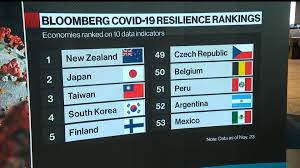Awkward! JL
Grace Dean reports in Insider:
Cards issued by Russian banks that have been hit by sanctions are unable to use Apple Payand Google Pay services, the Central Bank of Russia said. Those banks' customers wouldn't be able to use their cards abroad, or to make online payments to companies registered in countries that have issued sanctions. People in Russia have been queuing at ATMs to get US dollars over concerns that the value of the Russian ruble will continue to plummet, while some banks in Moscow are running out of US dollars. The mass withdrawals have led to fears of a run on banks which could leave them short of capital.




























































